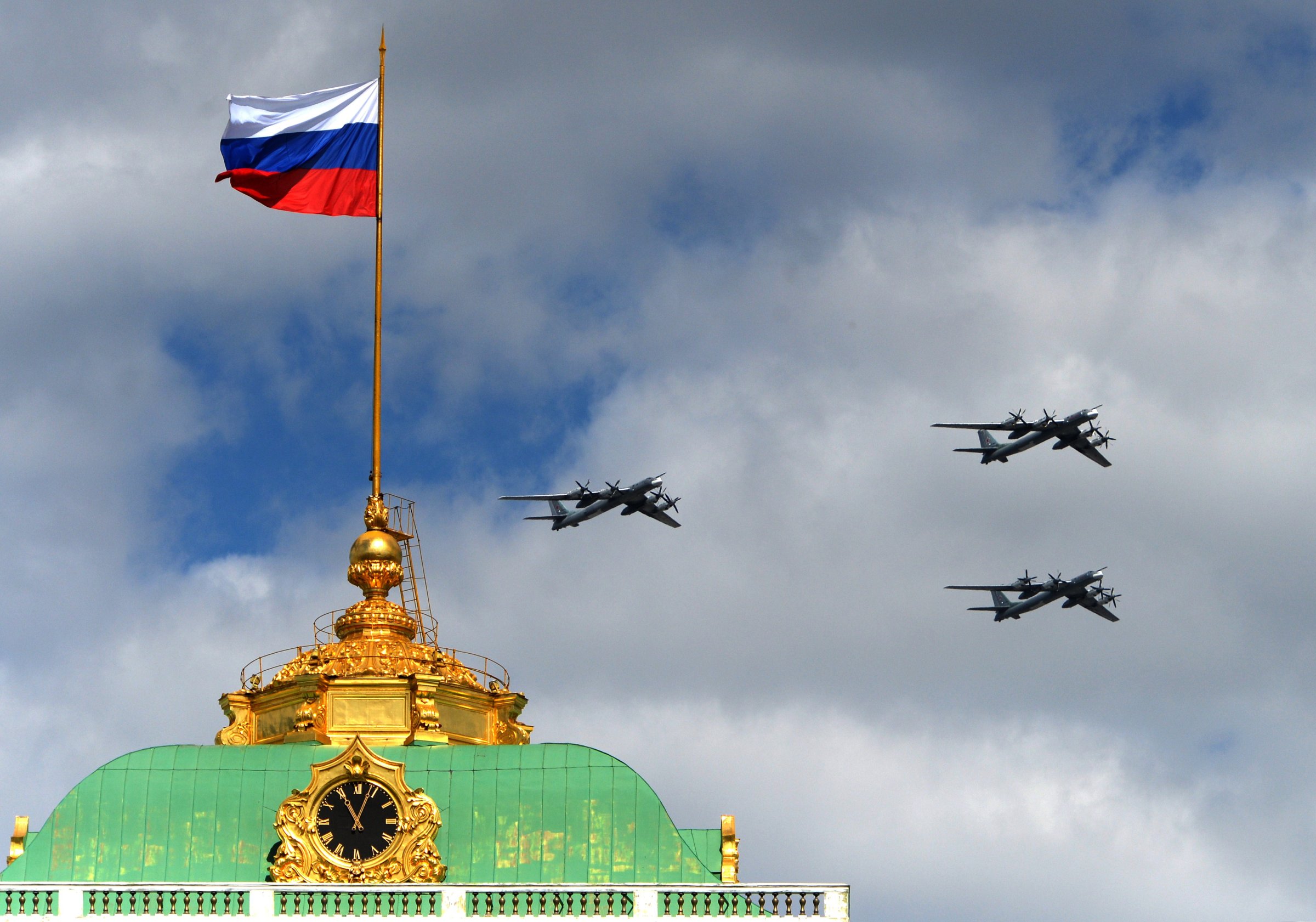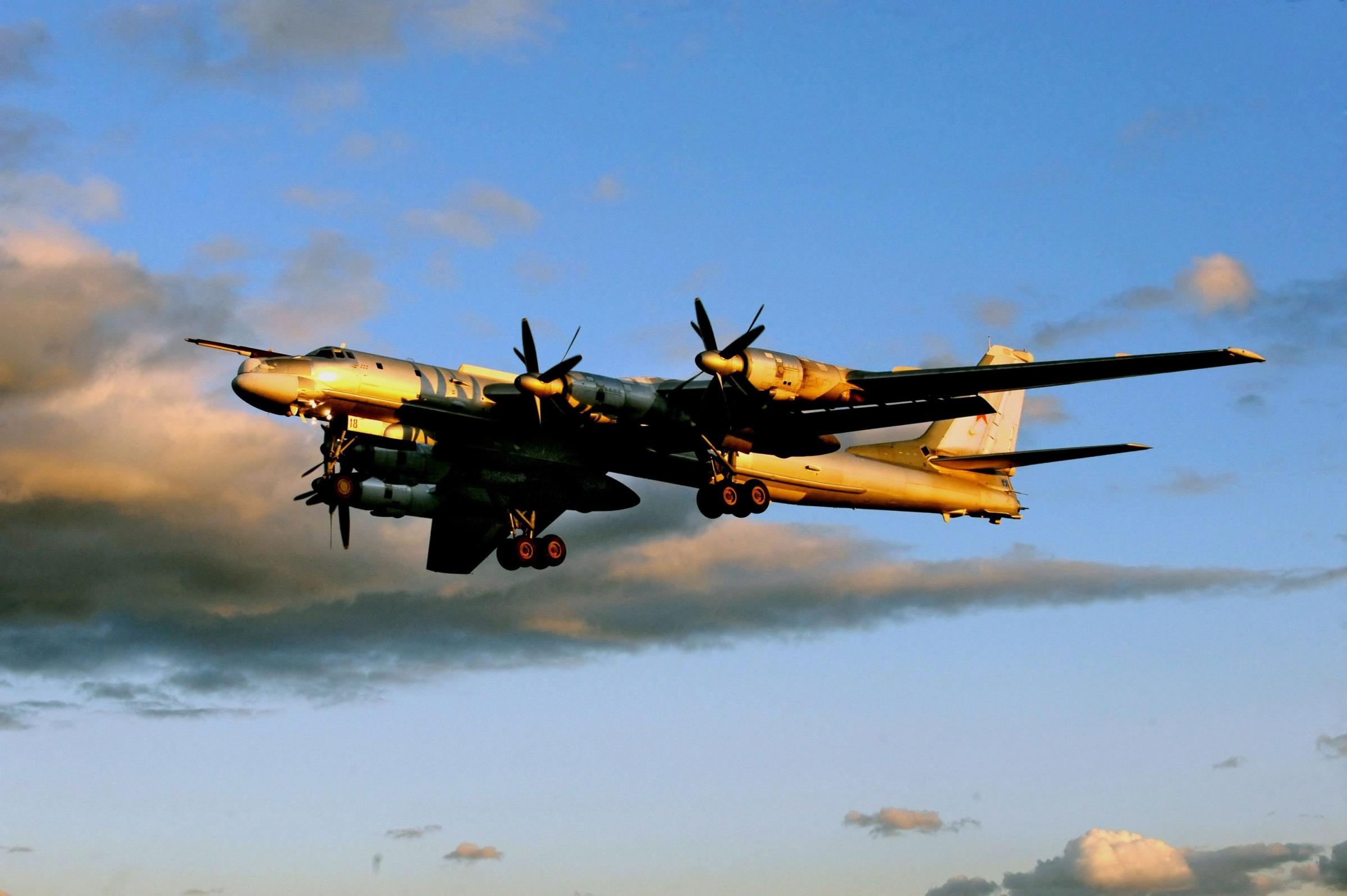
The bad news for Americans old enough to remember Cold War shivers is that Soviet-era Tu-95 Bear bombers recently showed up off the U.S. coast. The good news, for Americans, is that the 1950s-era Russian air force turboprop airplanes keep crashing.
And that combination, a former Air Force general says, makes it unlikely that the Russian bombers are carrying any nuclear weapons close to U.S. shores (the bomber would carry such weapons inside its fuselage, making it impossible for outsiders to tell if there any are aboard, Air Force officials say).
“Risking the loss of a long-range bomber like a Tu-95 with a nuclear weapon on board is a pretty big risk,” says David Deptula, a retired three-star officer who spent 3,000 hours in fighter planes, including 400 in combat. “It would be very imprudent to be carrying a nuclear weapons on board a flight like that.” A pair of Russian pilots died July 14 when their Tu-95 crashed in Russia’s Far East; a second Tu-95 ran off a Russian runway June 8 following an engine fire, injuring several crew members.
Russia has been averaging about five such flights annually over the past five years, the North American Aerospace Defense Command reports (although it spiked to 10 last year). “This is nothing new,” NORAD’s Michael Kucharek says. Each time the Russian bombers approach, the joint U.S.-Canadian force dispatches interceptors to eyeball them. “We go up and visually identify the aircraft, and let them know that we are there,’ Kucharek says. “They see us and we see them.”
“I don’t know what to make of it,” Merrill “Tony” McPeak, retired general and Air Force chief of staff, says of the Russian fly-bys. “The training value—polishing skills in navigation, aerial refueling, et cetera—can be achieved flying over Russian territory.”
Deptula says the flights are Russian President Vladimir Putin’s way of asserting Russian might. “He’s showing they still have a way to project power when and where they want to,” Deptula says. “It reinforces the fact that they do have a capability to project power that not many nations do.”
Russia’s actions in the skies, along with those in Ukraine and Crimea, have the U.S. military brass increasingly concerned. On Thursday, Lieut. General Robert Neller, tapped to be the next commandant of the Marine Corps, said he views Russia as the nation that poses the biggest threat to the U.S. “Their actions, and the fact that they have strategic forces, make them the greatest potential threat,” Neller said.
He was echoing the views of General Mark Milley, soon to be the Army chief of staff, and Marine General Joseph Dunford, soon to become chairman of the Joint Chiefs. “If you want to talk about a nation that could pose an existential threat to the United States, I’d have to point to Russia,” Dunford said at his confirmation hearing July 9. “If you look at their behavior, it’s nothing short of alarming.”
The latest Russian flight took place July 4 off the central Californian coast, and a pair of U.S. F-15s were dispatched to check out the intruders. “Good morning American pilots, we are here to greet you on your Fourth of July Independence Day,” a Russian crew member aboard one of the Tu-95s radioed the Americans. The Russians conducted similar flights in 2012 and 2014.
NORAD is pretty mellow about the flights, none of which has come inside the 12-mile territorial limits claimed by both the U.S. and Canada. The latest flight came within about 40 miles of the California coast. “We’ve seen these flight profiles before,”Kucharek says. “If a country has a military, they have to exercise their capabilities.”
That attitude is a far cry from the Pentagon’s view of the Tu-95 during the 1980s, when the lumbering bomber was featured regularly in its annual Soviet Military Power guide, a glossy publication designed to bolster support for President Ronald Reagan’s military buildup.

“The Tu-95/Bear is the primary intercontinental air threat to the United States,” the 1983 version said. “Capable of delivering free-fall bombs or air-to-surface missiles, under optimum conditions this aircraft can cover virtually all U.S. targets on a two-way mission.”
But Marine Lieut. General Neller apparently isn’t losing any sleep over the Tu-95 flights. “I don’t think they want to fight us,” he told the Senate Armed Services Committee Thursday. “Right now I don’t think they want to kill Americans.”
More Must-Reads from TIME
- Cybersecurity Experts Are Sounding the Alarm on DOGE
- Meet the 2025 Women of the Year
- The Harsh Truth About Disability Inclusion
- Why Do More Young Adults Have Cancer?
- Colman Domingo Leads With Radical Love
- How to Get Better at Doing Things Alone
- Michelle Zauner Stares Down the Darkness
Contact us at letters@time.com